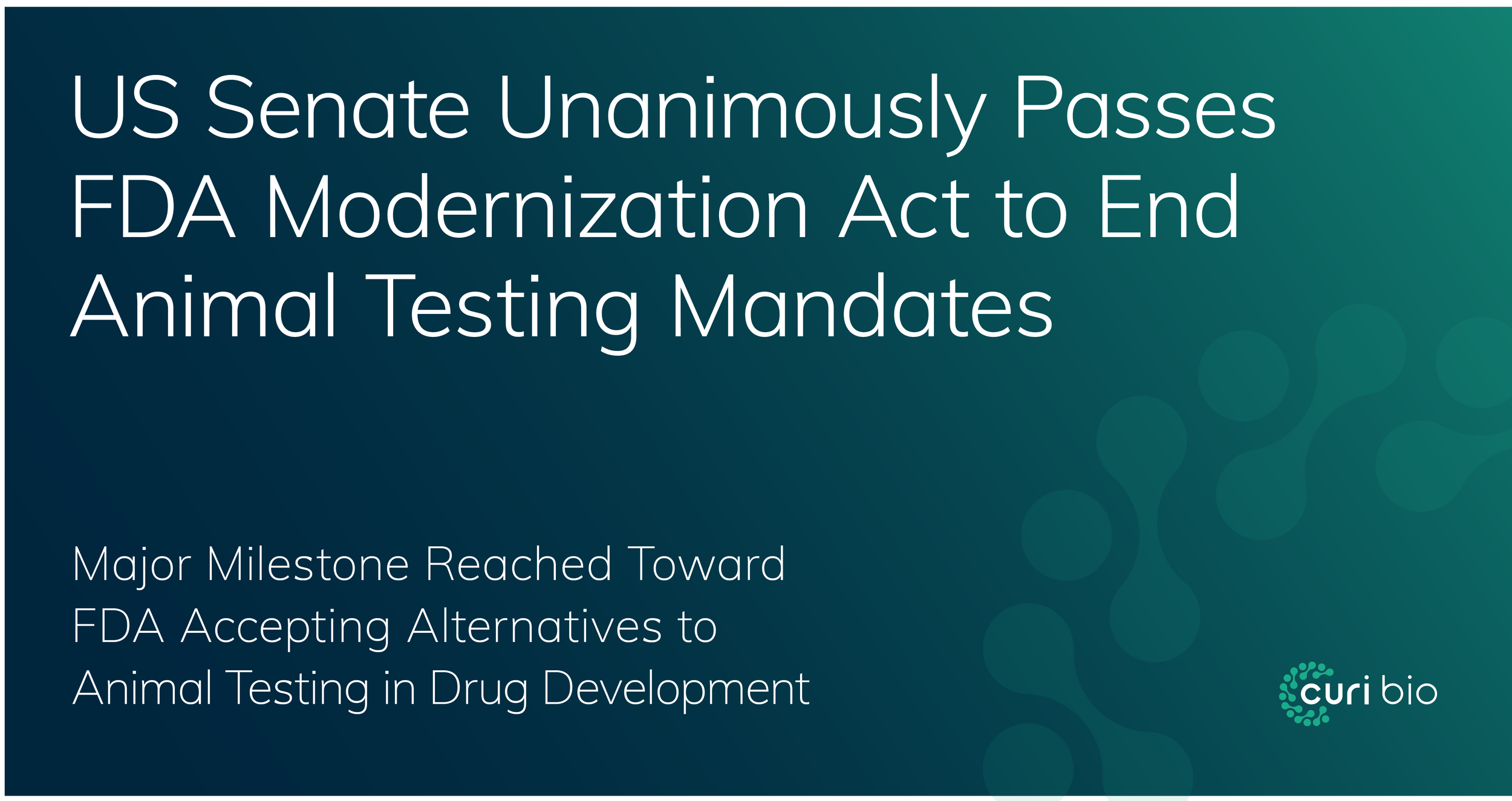US Senate Unanimously Passes FDA Modernization Act to End Animal Testing Mandates
Major Milestone Reached Toward FDA Accepting Alternatives to Animal Testing in Drug Development
On September 29, 2022 the U.S. Senate unanimously passed the FDA Modernization Act 2.0 to end animal testing requirements during development of new drugs. The passage of the act marks a significant watershed toward allowing drug developers more flexibility to use alternative methods to test new medicines, including translatable human-relevant models like organ and tissue chips.
In October 2021, Sen. Rand Paul and Sen. Cory Booker introduced the first FDA Modernization Act. The bill allows for drug developers to use alternative methods to animal testing to establish the drug’s safety and effectiveness when applying for market approval. As stated in the bill’s summary, “Under this bill, these alternative methods may include cell-based assays, organ chips and microphysiological systems, sophisticated computer modeling, and other human biology-based test methods.”
“The FDA Modernization Act 2.0 will accelerate innovation and get safer, more effective drugs to market more quickly by cutting red tape,” Sen. Paul said in a statement.
The bill will now head to the U.S. House of Representatives. If it passes the House, it will make room for the increased use of human-derived testing methods—such as organ and tissue chips—that have been shown to provide a strong alternative to animal testing of potential new medicines.
Encouraging drug developers to use human-relevant models in preclinical development promises to lower costs and risk, thereby accelerating the introduction of new potentially life-saving medicines.
“Curi Bio is advancing human-relevant platforms for drug discovery to reduce reliance on animal testing,” said Elliot Fisher, Co-founder and Chief Business Officer at Curi Bio. “We support governmental actions in the US and EU to move away from animal models towards more predictive human models to close the gap between preclinical results and clinical impact.”
Read the full FDA Modernization Act 2.0 HERE.

